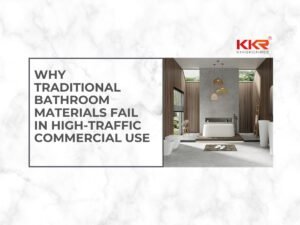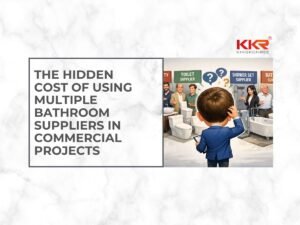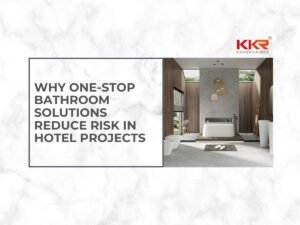Saudi Arabia’s luxury hotel, resort, and villa markets have rapidly evolved in the past decade, with a growing demand for premium, low-maintenance bathroom materials. Among these, solid surface bathtubs have become the material of choice for architects and contractors aiming to combine modern aesthetics with durability.
However, the high humidity levels found in certain Saudi Arabian regions—particularly coastal areas like Jeddah, Dammam, and Al Khobar—can challenge even the best bathroom materials. This guide explains how to maintain solid surface bathtubs in such environments to ensure long-lasting beauty and performance.
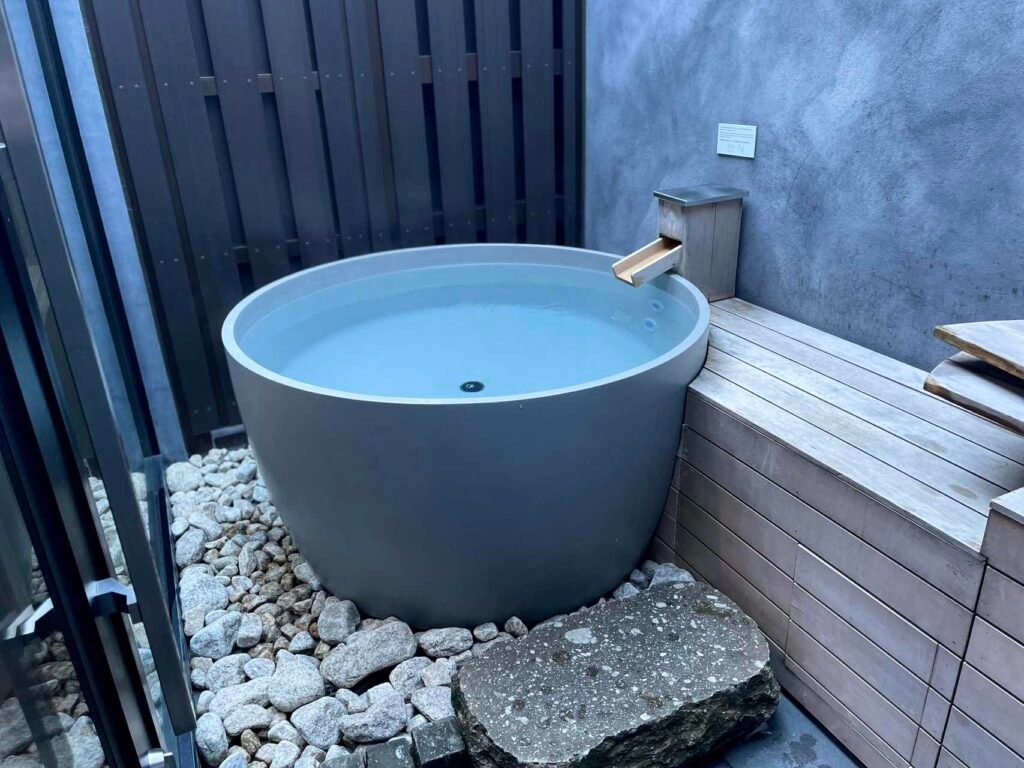

Understanding the Saudi Climate Challenge
While Saudi Arabia is known for its desert climate, coastal and resort regions near the Red Sea and Arabian Gulf experience prolonged humidity and salty air. Over time, these conditions can cause:
- Mold and mildew buildup in joints or crevices
- Deterioration of adhesives or sealants
- Surface discoloration caused by mineral deposits
- Corrosion in metal accessories or fixtures
Unlike acrylic or metal bathtubs, solid surface bathtubs are inherently resistant to these issues, provided they are properly installed and maintained.
Why Solid Surface Performs Better in Humid Climates
1. Non-Porous and Seamless
Solid surface materials are completely non-porous, meaning moisture cannot penetrate or accumulate beneath the surface. This helps prevent mold, bacteria, and stains — a key advantage for coastal villas and hotels.
2. Thermal Stability
Saudi Arabia experiences wide temperature fluctuations between day and night. Solid surface maintains its structural integrity under thermal stress, reducing the risk of cracks or expansion.
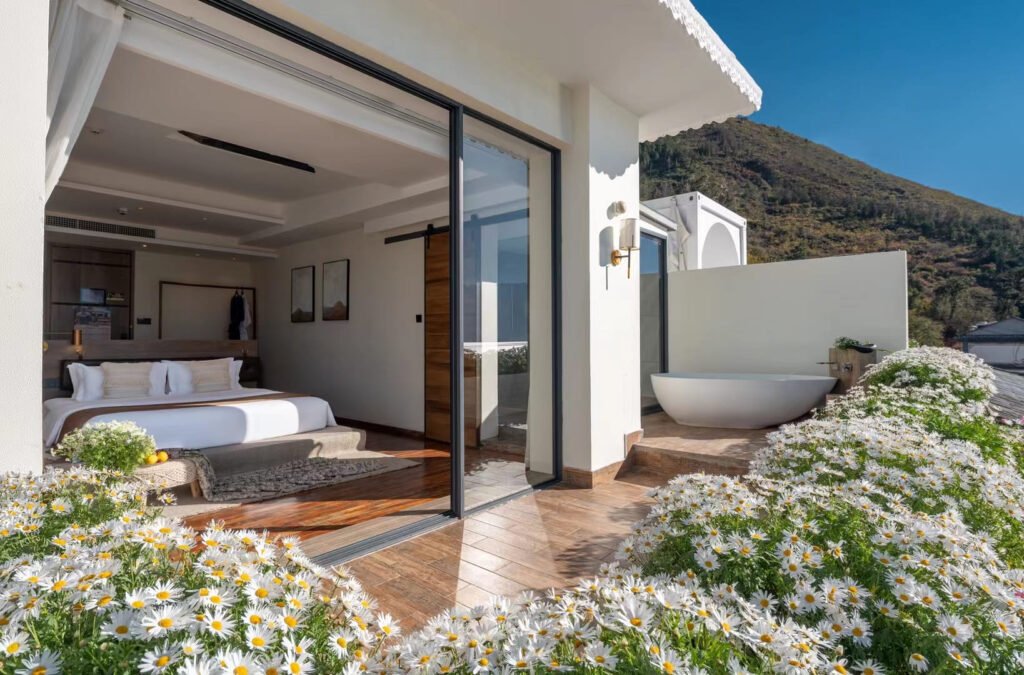

3. Easy to Repair and Maintain
Even if minor scratches or dull spots appear due to daily use, they can be easily sanded and repolished, extending the bathtub’s lifespan far beyond other materials.
4. Hygienic and Antibacterial
KKR® solid surface bathtubs are designed with antibacterial technology, ideal for the hospitality sector where hygiene and guest safety are priorities.
Maintenance Tips for Humid Regions
✅ 1. Ensure Proper Ventilation
Install efficient bathroom exhaust fans or dehumidifiers to minimize moisture accumulation. This prevents water vapor from condensing on the bathtub surface and walls.
✅ 2. Regular Cleaning Routine
- Use mild soap or neutral cleaner; avoid strong acids or bleach.
- Rinse and wipe dry after each use to avoid mineral buildup.
- Weekly, use a soft cloth and gentle detergent to maintain gloss.
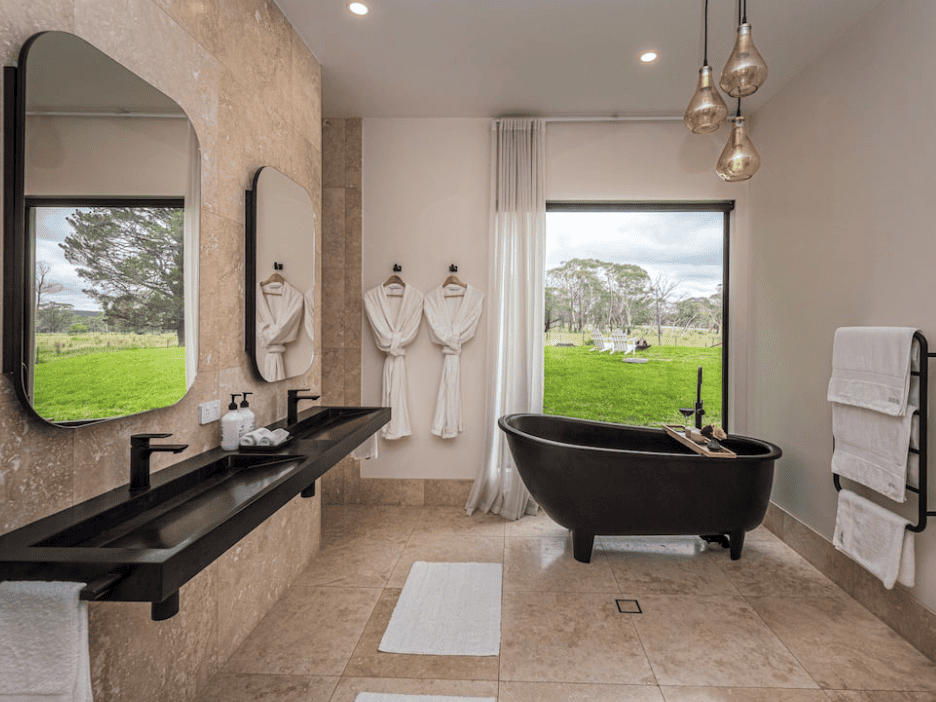

✅ 3. Check Sealants and Joints Annually
Humidity can gradually weaken silicone joints between the bathtub and surrounding surfaces. Inspect annually and re-seal when needed using marine-grade, mold-resistant sealant.
✅ 4. Avoid Prolonged Standing Water
While solid surface resists moisture, standing water in humid rooms can create mineral stains. Encourage drainage and quick drying, especially in hotel suites and spas.
✅ 5. Polish Every 1–2 Years
In high-use environments (e.g., resorts or serviced apartments), re-polish the bathtub surface every couple of years to restore the original satin finish.
Common Mistakes to Avoid
- Using harsh cleaning agents (like chlorine bleach or acetone) that can damage the finish.
- Ignoring ventilation, leading to humidity condensation and mold in adjacent grout lines.
- Installing on uneven bases, causing water to pool and weakening the lower structure.
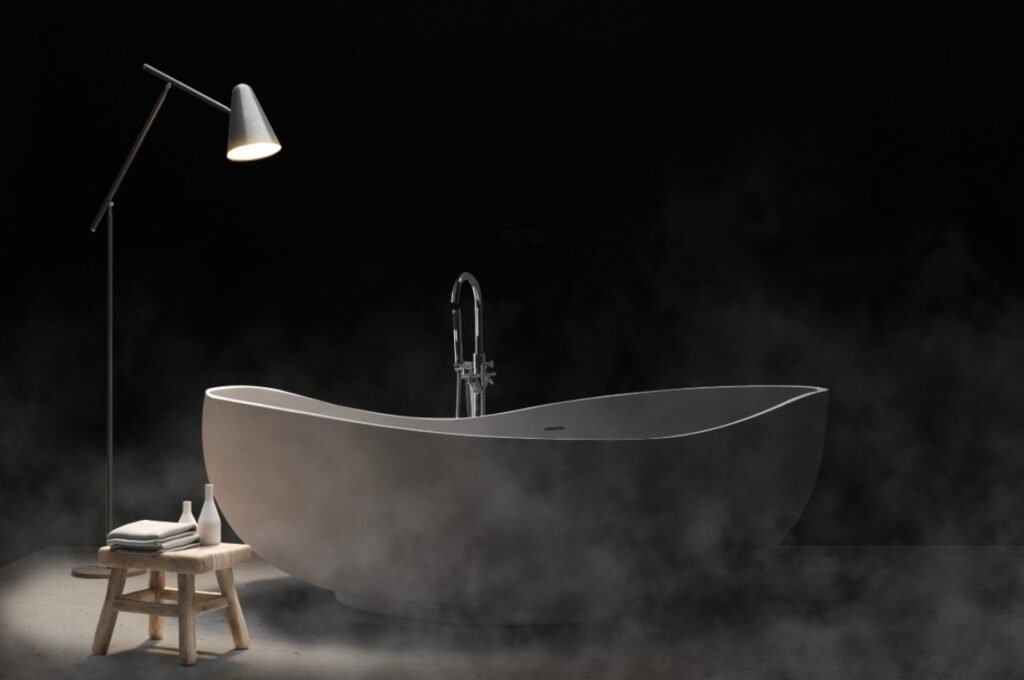

Case Example: Coastal Hotel Projects in the GCC
Several Red Sea coastal resorts and Dubai-area hotels have adopted solid surface bathtubs for both guest rooms and spa suites.
These installations have shown:
- Zero mold growth even after years of use.
- Reduced maintenance time by 40% compared to acrylic or tile.
- Longer lifecycle and consistent finish despite daily humidity exposure.
KKR® has successfully supplied similar projects in the GCC, including high-humidity zones, where solid surface performance has been verified under long-term testing conditions.
Environmental and Sustainability Benefits
Solid surface bathtubs not only perform better but also support eco-friendly goals important in modern Saudi development projects, such as NEOM and Red Sea Global.
- Recyclable and repairable materials reduce waste.
- Long lifespan lowers replacement frequency and resource consumption.
- Low VOC production ensures indoor air safety.
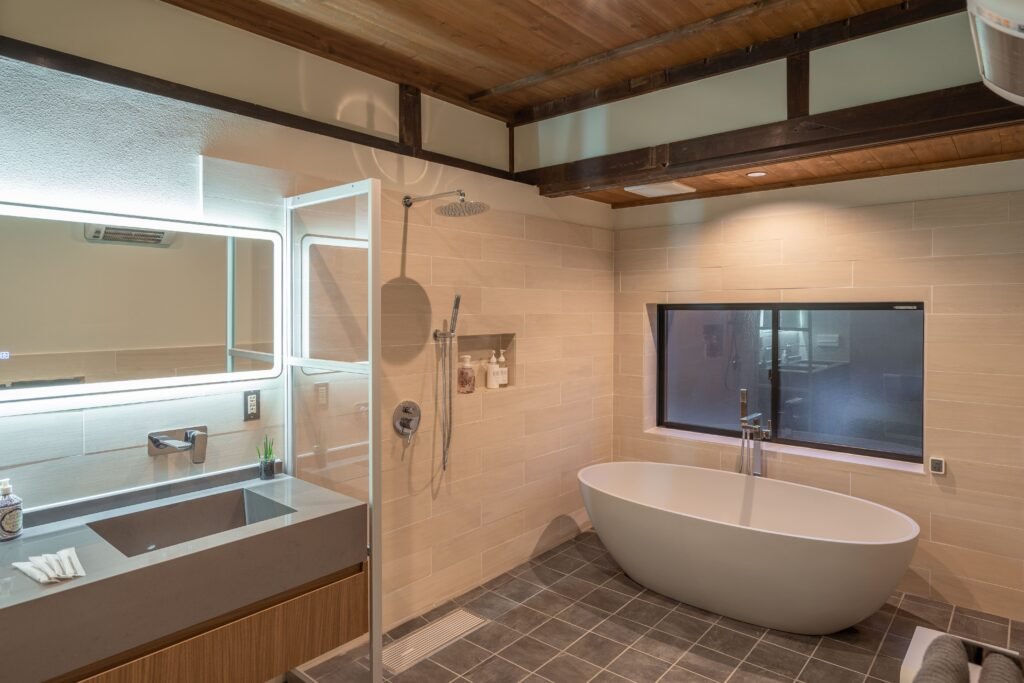

Conclusion
In Saudi Arabia’s challenging, high-humidity climate, solid surface bathtubs are a reliable, long-term investment for hotel developers and homeowners alike. Their resistance to moisture, easy cleaning, and repairability make them ideal for luxury and commercial environments.
With over 25 years of solid surface manufacturing experience, KKR® provides custom-designed bathtubs built to withstand Middle Eastern climates — combining beauty, hygiene, and engineering strength.
👉 Learn more at www.kkrbath.com
FAQ
Q1: Will humidity cause my solid surface bathtub to discolor?
A: No. Solid surface materials are non-porous and UV-stable, preventing discoloration even in humid, sun-exposed areas.
Q2: Can I use solid surface bathtubs outdoors in Saudi resorts?
A: Yes. KKR® bathtubs are tested for UV, moisture, and temperature resistance, making them suitable for outdoor and semi-open environments.
Q3: How often should I maintain or polish my bathtub?
A: For residential use, every 2–3 years; for hotels, once every 12–18 months depending on usage intensity.
Q4: What’s the best cleaner for solid surface bathtubs?
A: Neutral pH soap or mild detergent. Avoid abrasive powders or solvent-based cleaners.
Q5: Can mold grow on solid surface materials?
A: No. Mold cannot penetrate or grow within solid surface material — it can only develop on neglected residue, which is easily cleaned.
